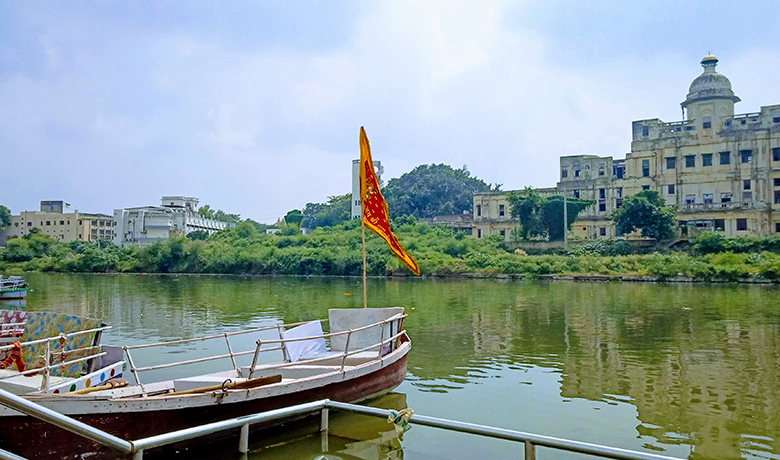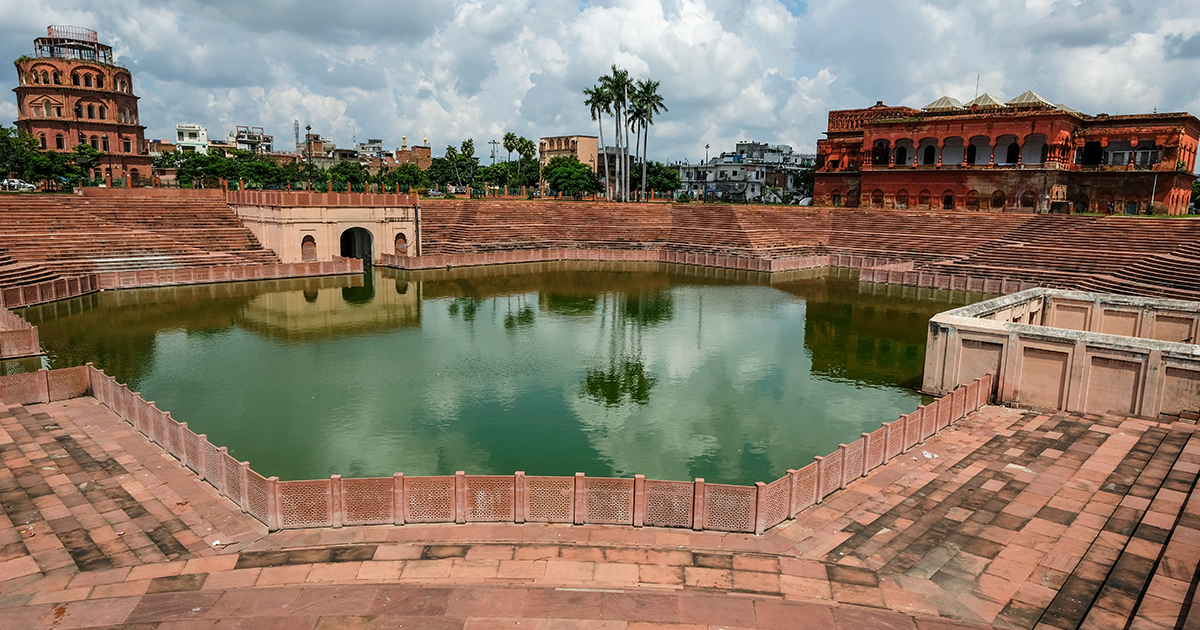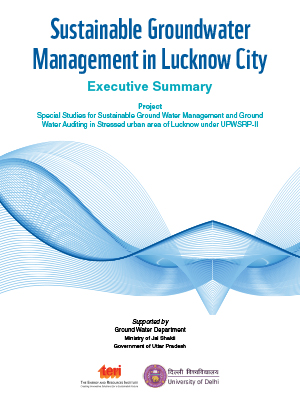Special studies for sustainable groundwater management in urban area of Lucknow

The study finds that the groundwater exploitation in Lucknow is 17 times more than the rate of recharge and projects a decline in the water table in various areas of the city
Underground water is a moving and renewable resource, based on annual availability of rainfall. Availability of groundwater depends on geological and climatic conditions. Annual demand of usable groundwater for the country has been estimated to be 4.5 crore hectare metres. Also, as compared to surface water, groundwater is less expensive and more qualitative. However, considering the reduction in infiltration capacity due to urbanization and its excessive withdrawal more than the recharge potential is lowering the water level in the country. Hence, it is necessary to make a thorough assessment of groundwater resources of a region and take initiatives for the sustainable management of groundwater resources. The objective of this project is to study and understand the different dimensions of groundwater resources of a city. This includes an assessment of its availability, demand, extraction and uses in different sectors, but also looks for assessment of factors influencing the availability of groundwater. An analysis of rainfall patterns and land-use, land cover changes will help in understanding the changing patterns in recharge potential of the city aquifers. This project also seeks an assessment of groundwater quality and factors influencing its dynamics. An understanding about the other sources like surface water and its contribution in the overall supply system of the city will help in formulating the long-term sustainable groundwater management plan for the city.
Sustainable Groundwater Management in Lucknow City
Report launched on: 5th June, 2021

The report on the Sustainable Groundwater Management in Lucknow City was launched at the curtain raiser event of the World Sustainable Development Summit 2022. The event was held on 4th June, the eve of World Environment Day 2021, on the theme of Sustainable, Equitable and Resilient Water Use.
This study is prepared in collaboration with the Department of Geology, University of Delhi. The study was sponsored by Uttar Pradesh Groundwater Department, Lucknow with the support from The World Bank.
The study finds that groundwater exploitation in Lucknow is 17 times more than recharge and at this rate, by 2031, the groundwater table in the key localities of central Lucknow and those on the city's fringes is projected to further decline by about 20-25 meters and 5-10 meters respectively.
The study includes a detailed assessment of availability, demand, extraction, and usage of groundwater in different sectors within the urban limits of the city. It also estimates the overall contribution of groundwater to Lucknows economy and makes key recommendations for improving its management and governance with the involvement of all the stakeholders.
Key findings from the demand survey conducted under the study are as follows:
- 72 percent households in Lucknow use groundwater
- Almost 90 percent of multistory housing societies and 70 percent of commercial users comprising hotels, hospitals, schools, offices and malls are dependent on groundwater
- Almost all the surveyed societies in central, north and east Lucknow are extracting groundwater through private borewells. 60% of these borewells are more than 200 feet deep
- At least 25% of commercial users also reported that since the drilling, they have increased the depth of their borewells by almost 100 m, due to lowering of water table in their area
- Use of overflow bell to indicate the filling of water storage tank is not popular among the citizens
- 64% of households reported about the use of water purifier, of which 3/4th are reverse osmosis (RO) systems
The study suggests the following strategies for its sustainable management -
- Rainwater harvesting: Create capacity of 1500 ML per annum of rainwater harvesting. This will require a surface area equivalent to 40 million m2 and an investment of about Rs. 41 crore.
- Reduction in groundwater demand: Use of water saving fixtures can reduce daily per capita water requirement by 1/3rd of the current demand. This will require installation of atleast 3 water saving fixtures per household for around 2,00,000 households in these zones. Immediate cost requirement for these fixtures will be about Rs. 30 Crore.
- Decentralized wastewater recycling: Installation of 2000 decentralized wastewater treatment plants of 10 KL capacity each in commercial complexes, multi-story complexes, group housing societies etc. can reduce the water demand of these zones by 20 MLD. This will require an immediate expenditure of around Rs. 60 Crores.
- Substitution of groundwater with surface water: To ensure the sustainable management, it is necessary to substitute current groundwater supply with surface water sources like Haidar canal and Moti Jheel. These can be developed practically to provide requisite amount of water. Total cost for the substitution head can be developed based on the detailed project report for the identified source.

